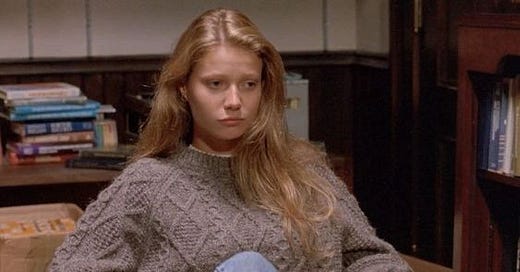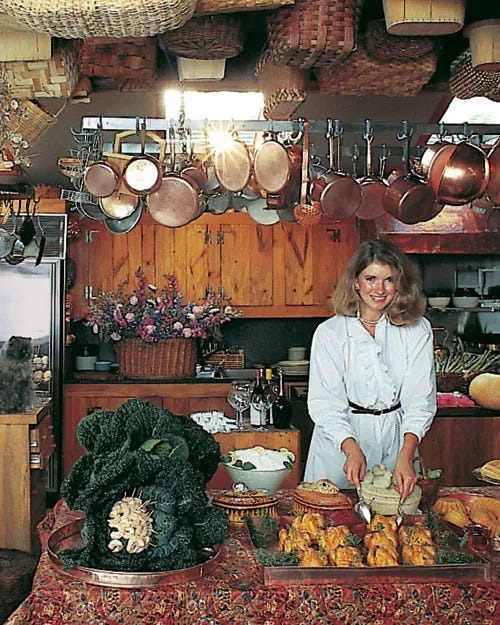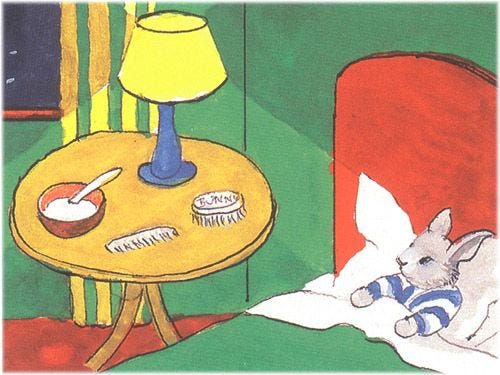pinterest love affair, mastering small talk, and recent media consumption
Hello.
Did you eat breakfast this morning?
This morning I made a breakfast charcuterie situation with sumo orange slices, fresh pears, an array of cheeses, fresh olives with rosemary, two slices of thick cranberry walnut bread toasted with salted butter and raspberry jam, and one jammy egg.
Something I’ve been meaning to talk about on here is my love (and sometimes obsession) with Pinterest. Of all the apps out there, Pinterest has, and always will be, my comfort app. I’ve always been a visual person, which is probably why I enjoy reading magazines over novels. Pinterest feels like a safe corner of the digitalverse where I can create mood boards (and secret mood boards), to manifest dreams and get inspired. I know everyone is always talking about finding comfort and tending to mental health off-screen. But sometimes, your phone is right there and you don’t have the energy to go outside for a walk or take an everything shower or take a yoga class or cook something new. I justify it in my head as a “healthy doomscroll”.
(A suggestion to cure Sunday scaries ^)
Something else I’ve been loving that I forgot to mention in yesterday’s newsletter is cheese and crackers. Let me be specific. the Townhouse Club butter crackers with a very good quality extra sharp cheddar cheese (thinly sliced). It’s just so good. Maybe some fresh grapes on the side if you’re craving something crunchy and sweet. Or a cornichon if you’re craving crunchy and salty.
Let’s move on and get into today’s articles. At the end, I’ll be sharing recent media consumption that I’m recommending.
Read with me:
The Surprising Effect Our Friends Have On Our Finances
There’s a magnetic pull of social media on our financial well-being. It's fascinating—and a bit alarming—how scrolling through friends' vacation snaps or their latest splurges can skew our financial self-assessment. This phenomenon isn't just about feeling momentarily envious; it's shaping our economic outlook and spending habits in more profound ways than we might realize. Even when the economy shows signs of strength, the curated prosperity we see online can leave us feeling financially inadequate, nudging us towards decisions that might not align with our real financial health or goals.
The Wall Street Journal
The article hits home with the simple yet revolutionary power of two letters: N-O. It's a deep dive into the liberating effect of setting boundaries for our time and energy. This piece doesn't just scratch the surface by suggesting we turn down yet another calendar invite; it delves into the psychological barriers that make us serial 'yes' people. Whether it's the dopamine rush of new experiences, the fear of missing out, or the weight of guilt and obligation, learning to say no is painted not just as a time management hack, but as a pathway to a happier, more intentional life. Both pieces offer more than just observations; they invite us to rethink deeply ingrained habits and societal norms, pushing towards a more mindful and satisfying existence.
The Atlantic
Are TikTok and Instagram Dulling Your Taste?
"Filterworld" dives into how the digital age's algorithmic curation might be sanding down our unique tastes, suggesting our likes and dislikes are increasingly shaped not by personal discovery but by what's trending on social media. Kyle Chayka's exploration raises the alarm on the potential loss of creative agency, painting a picture of a world where our cultural consumption becomes homogenized, driven more by algorithms than individual curiosity.
The Los Angeles Times
Can AI Therapists Do Better Than The Real Thing?
The exploration of AI therapists raises compelling questions about the role of chatbot counselors in addressing our mental health needs. While they offer accessibility, affordability, and anonymity, sparking a unique form of therapeutic alliance without judgment, the piece also delves into the limitations and ethical concerns, such as the potential for misleading advice and privacy breaches, underscoring the nuanced debate on whether AI can truly substitute for the human touch in therapy.
The Guardian
How To Master The Art Of Small Talk
Mastering small talk involves viewing it as an opportunity for connection rather than a mere social obligation. By leading with genuine curiosity about the person you're speaking to, and focusing more on listening than talking about yourself, you can transform small talk from mundane exchanges to the foundation of meaningful relationships. It's about seeing beyond the surface and engaging with the interests, experiences, and perspectives of others to uncover the "web of hugeness" that makes each person unique.
Vox
Music Is TikTok’s Past. Sounds May Be Its Future
The evolving landscape of TikTok's audio content, highlighted by the shift from mainstream music to viral sound clips, underscores a significant transformation in how users engage with the platform. As Universal Music Group pulls its songs, creators are increasingly turning to royalty-free sounds and original clips for their content. This trend not only reflects the adaptability of TikTok's community but also hints at a future where the value of content may hinge more on creativity and memetic potential than on traditional music licensing agreements.
Wired
Media Consumption:
Watching:
Old Martha Stewart Living Episodes (ultimate comfort)
Reading:
Eros The Bittersweet by Anne Carson
The story delves into the concept of desire from an ancient Greek perspective, blending philosophy, literary criticism, and poetic insight. Carson examines the paradoxical nature of eros as both sweet and bitter, exploring how desire bridges the gap between the known and unknown, enhancing the sweetness of love with the bite of its eventual loss.
Listening:
This episode from This Jungian Life podcast
Okay, that’s all for today.
For more follow me:
See you tomorrow.
Bye<3






